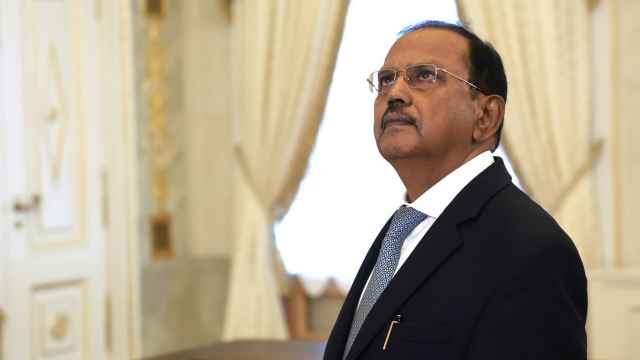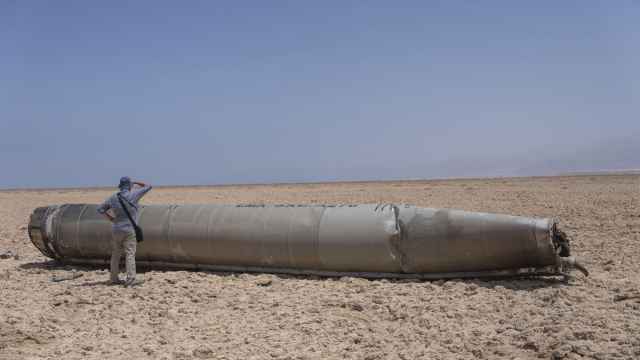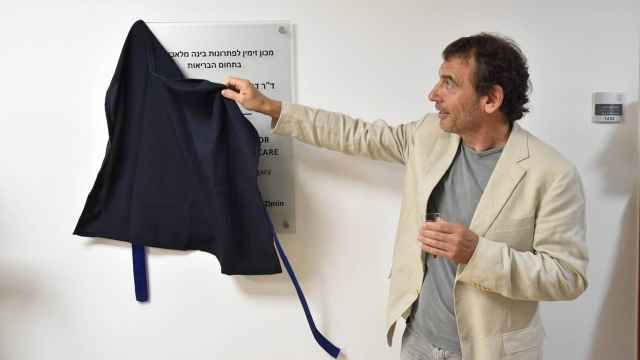LONDON — A Kremlin official told a U.S. diplomat that Russian authorities had been tracking the suspected killers of former spy Alexander Litvinenko before his poisoning death in London four years ago, but had been warned off by Britain, according to a U.S. diplomatic cable released by WikiLeaks on Saturday.
Litvinenko, who lived and worked in Britain, was poisoned in November 2006 using polonium-210, a rare and highly toxic radioactive isotope. His killing sent relations between Britain and Russia to a post-Cold War low, and London wants Moscow to extradite State Duma Deputy Andrei Lugovoi to stand trial for murder.
Russian prosecutors have refused, and Lugovoi denies any link to the death.
According to the leaked secret U.S. cable published on the Guardian newspaper web site, Russian special presidential representative Anatoly Safonov said shortly after Litvinenko's death that Russia had been tracking the dissident's assassins and also indicated that the Kremlin had not been involved in the murder.
The memo, dated Dec. 26, 2006, recorded details of a dinner meeting at the U.S. Embassy in Paris between Safonov and U.S. Ambassador-at-Large Henry Crumpton.
Speaking about the need for bilateral cooperation to tackle terrorism, Safonov "cited the recent events in London — specifically the murder of a former Russian spy by exposure to radioactive agents — as evidence of how great the threat remained," the leaked cable said.
"The implication was that the FOR [Russia] was not involved, although Safonov did not offer any further explanation," read a comment added by U.S. Embassy staff.
Documenting later exchanges between the men, the memo added: "Safonov claimed that Russian authorities in London had known about and followed individuals moving radioactive substances into the city but were told by the British that they were under control before the poisoning took place."
The memo gave no indication as to Crumpton's or the U.S. government's view of Safonov's comments.
The leaked cable comes after Russian diplomats criticized Britain over its handling of the case of a suspected Russian spy.
Yekaterina Zatuliveter, 25, an aide to Liberal Democrat lawmaker Mike Hancock, who sits on British parliament's defense committee, faces deportation after being arrested on suspicion of espionage, Britain's Sunday Times reported last week.
Alexander Sternik, charge d'affaires at Russia's embassy in London, said Thursday that Britain told Russia that Katia Zatuliveter, 25, had been arrested under immigration law but said nothing about espionage.
British authorities have not confirmed why Zatuliveter is being held and Sternik, Russia's top diplomat in Britain pending the arrival of a new ambassador, said she was legally resident in Britain and had a valid visa.
Hancock said she had been taken to an immigration detention center and denied she was a Russian spy. Zatuliveter has told the BBC she is appealing against deportation.
Asked if Russia reserved the right to retaliate if Britain deported Zatuliveter, Sternik said: "I can only speculate and advise you to look into the history of similar cases."
In past spy scandals, London and Moscow have typically engaged in tit-for-tat expulsions.
A Message from The Moscow Times:
Dear readers,
We are facing unprecedented challenges. Russia's Prosecutor General's Office has designated The Moscow Times as an "undesirable" organization, criminalizing our work and putting our staff at risk of prosecution. This follows our earlier unjust labeling as a "foreign agent."
These actions are direct attempts to silence independent journalism in Russia. The authorities claim our work "discredits the decisions of the Russian leadership." We see things differently: we strive to provide accurate, unbiased reporting on Russia.
We, the journalists of The Moscow Times, refuse to be silenced. But to continue our work, we need your help.
Your support, no matter how small, makes a world of difference. If you can, please support us monthly starting from just $2. It's quick to set up, and every contribution makes a significant impact.
By supporting The Moscow Times, you're defending open, independent journalism in the face of repression. Thank you for standing with us.
Remind me later.





